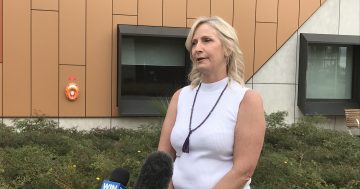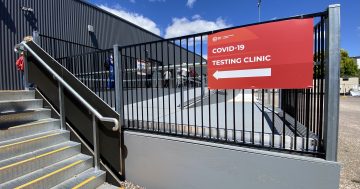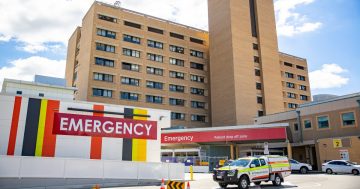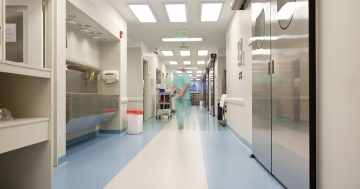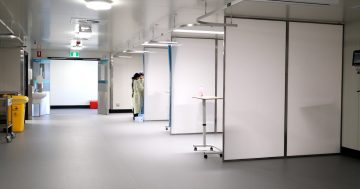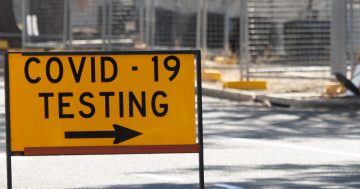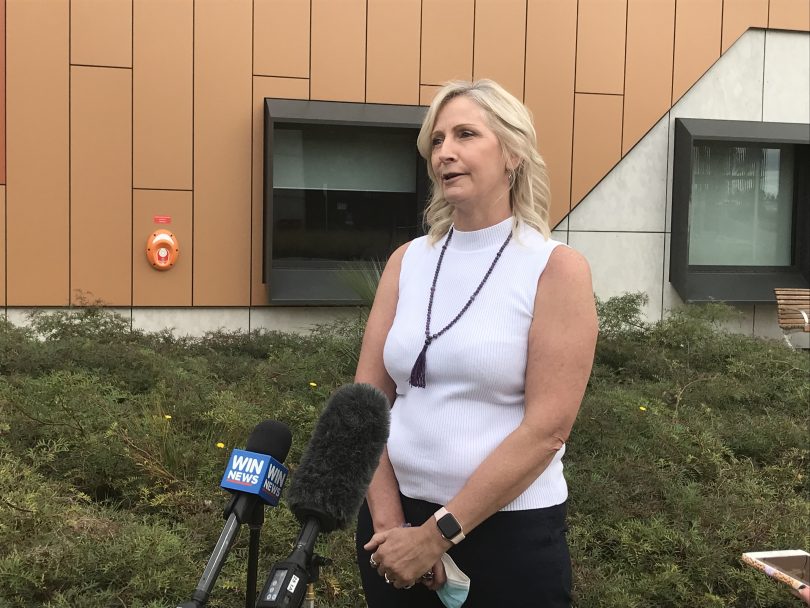
Gloria Gardiner is one of the first patients to require the services of the Post COVID Recovery Clinic. Photo: Lottie Twyford.
It’s estimated between five and 15 per cent of all COVID-19 cases will be left with lingering, serious symptoms such as fatigue, poor sleep, respiratory issues and an inability to exercise as they once did.
Crace resident Gloria Gardiner is one of those dealing with long COVID.
The 57-year-old was diagnosed on 10 January this year as the more infectious Omicron variant spread rapidly around the Territory, leading to much higher daily caseloads.
Following her positive test result, Ms Gardiner described herself as “down for the count” for about three weeks. She even lacked the energy to talk or get herself upstairs to shower, instead spending nights on the couch.
Living alone, it also proved tough mentally.
“I got quite depressed because I couldn’t do anything … I wasn’t enjoying life,” she said.
Ms Gardiner also needed to switch off from checking ACT Health Facebook page updates on the pandemic because she felt they weren’t accurately representing her experience.
“I was very upset because of the way they were saying people only got sick for a week and that this is just like a ‘normal flu’ – that was not my case at all.”
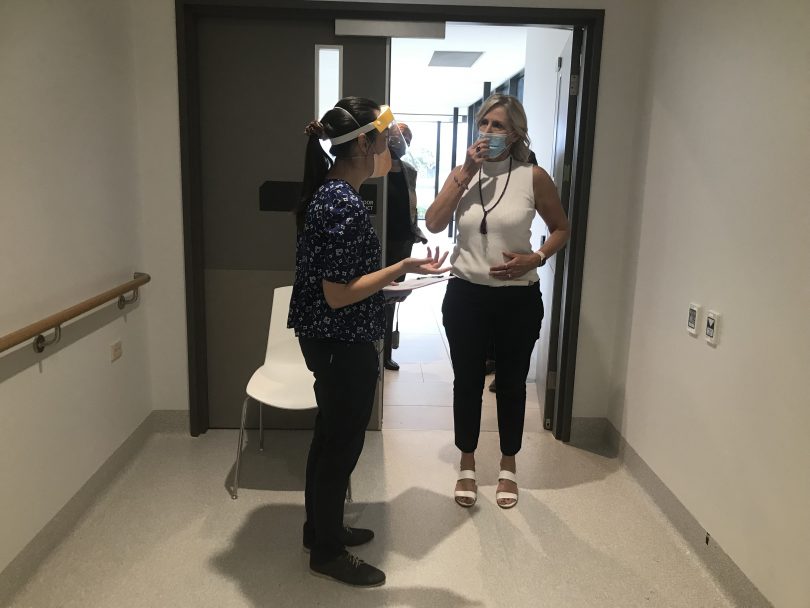
Gloria Gardiner (right) begins her program of rehabilitation at the Post COVID Recovery Clinic. Photo: Lottie Twyford.
She does, however, count herself as “really lucky” to have been with the COVID-19 Care at Home team and an attentive GP who checked on her regularly and organised for medication to be delivered.
Ms Gardiner, who has represented the ACT in touch football, was fit and active pre-COVID. She’d often go for bushwalks and on runs, and was an avid mountain biker.
But getting back to her usual level of fitness has proven a challenge.
Her symptoms didn’t end after the initial three-week period. For the last three months, she’s struggled to breathe, coughs frequently, and will often have to clear her throat.
Symptom-free of asthma for a long period before COVID struck, she has been forced to return to daily asthma medication.
It’s also affected her tastebuds. She once loved coffee, but can no longer drink it. Other foods she once craved, she can no longer tolerate.
But more help is at hand. Ms Gardiner this week began a program of rehabilitation at the Post COVID Recovery Clinic set up at the University of Canberra Hospital.
She’s hopeful that through rehabilitation, her usual energy levels will return.
Long COVID patients will be supported at the clinic by a range of allied health professionals, including a rehabilitation medicine specialist, physiotherapist, occupational therapist, exercise physiologist and social worker.
Five patients have now attended the clinic, mostly referred through GPs.
Canberra Health Services and the University of Canberra are using the clinic to conduct research into long COVID care.
Canberrans aged 16 years and older experiencing long COVID more than 12 weeks after contracting the virus can access care through the clinic.
Staff specialist at the University of Canberra Hospital Dr Philip Gaughwin said it was important the service was up and running at this time – about three months after Omicron first peaked in the ACT.
Dr Gaughwin said it was too early to estimate how much of an increase in demand there would be or how many Canberrans needed rehab treatment through the clinic.
“We’re in a fortunate position that our big spike in COVID-19 cases occurred after 98 per cent of our population was vaccinated,” he said. “We do have evidence that having been immunised against COVID-19 can ameliorate some of those features of long COVID.”
Minister for Health Rachel Stephen-Smith said the clinic was a fantastic example of how Canberra’s healthcare workers were turning innovative research into impactful healthcare.
“The ACT Government is committed to supporting Canberrans through the global pandemic, which is why we allocated a further $105 million to the COVID-19 health response in the budget review announced in March,” she said.











